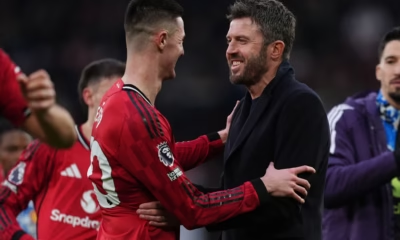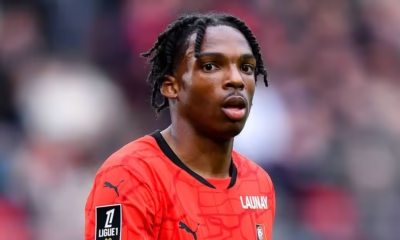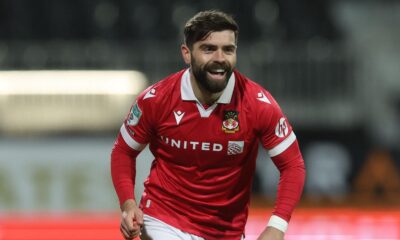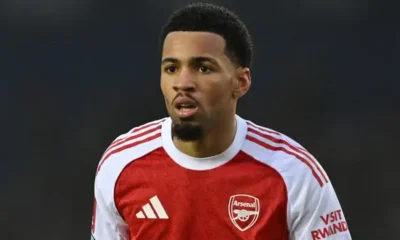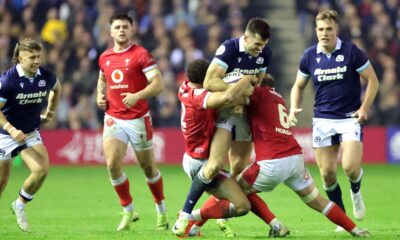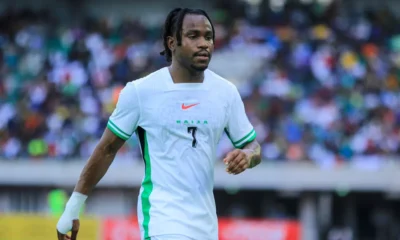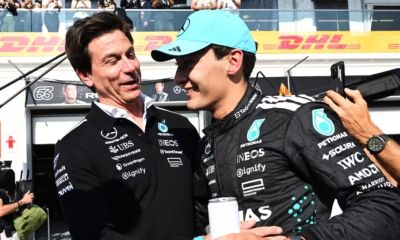News
Beckham Among Mourners At Sven-Göran Eriksson’s Funeral

The funeral of Sven-Göran Eriksson, the first foreign manager to coach the England national team, was held on Friday in the small Swedish town of Torsby where he grew up before embarking on an illustrious career at the pinnacle of European football.
A soft-spoken but determined coach, Eriksson guided teams in Sweden, Portugal and Italy, winning major trophies in the 1980s and 1990s before taking on the England job in 2001, managing stars such as David Beckham, who was among the attendees at the service.
Eriksson announced in January that he was terminally ill with pancreatic cancer and spent much of the following months reconnecting with many of the places and people central to his career before he died last month.
He fulfilled his dream of managing Liverpool, after leading the club in a charity legends game against Ajax at Anfield in March.
The funeral took place in Torsby, a rural town of less than 5,000 people near the border with Norway, and was attended by several hundred people inside the church.
Some 200 seats in the neo-Gothic church from 1898 were reserved for his family, friends and players from his career in the football world, according to his agent. The remaining seats were open for the public, according to Eriksson’s wish
Others followed the service on a big screen set up outside and the funeral was given blanket coverage by Swedish media.
The wooden coffin was wheeled in by pallbearers at the church Friday morning. Next to the casket was a photo of Eriksson on a small table. The floral wreaths included ones sent by FIFA and Lazio, the Italian team that Eriksson led to the Serie A title in 2000.
Others attending the funeral included the Swedish coach’s longtime partner Nancy Dell’Olio.
Tributes flowed in from prime ministers, clubs and former players following the news of his death while national teams including England and Sweden played with black arm bands during the the September international break.
Eriksson, known in Sweden simply as “Svennis,” led England to the 2002 and 2006 World Cup quarterfinals, and to the 2004 European Championship, managing a golden generation of players that besides Beckham included stars such as Frank Lampard, Wayne Rooney and Steven Gerrard.
He began building his international reputation when he guided Swedish club IFK Gothenburg to the UEFA Cup in 1982 and went on to win silverware as coach of Portugal’s Benfica and Italian clubs Roma, Fiorentina, Lazio and Sampdoria.
Unable to end England’s trophy drought, he left the helm of the national side in 2006, going on to coach Manchester City and Leicester City as well as Mexico and Ivory Coast and clubs in China and Philippines.

-

 News2 days ago
News2 days agoMichael Carrick Explains Mason Mount Absence In Manchester United Win Over Fulham
-

 Premier League2 days ago
Premier League2 days agoLiverpool Stun Chelsea With £60m Jeremy Jacquet Transfer Twist
-

 Uncategorized21 hours ago
Uncategorized21 hours agoElliot Lee Takes Subtle Swipe At Phil Parkinson After Wrexham Exit
-

 Premier League2 days ago
Premier League2 days agoCan Arsenal Recall Ethan Nwaneri? Why the Gunners Can’t Bring Him Back After Merino Injury
-

 More Sports20 hours ago
More Sports20 hours agoSix Nations Shake-Up: Why The New Six-Week Format Could Change Everything
-

 Local News2 days ago
Local News2 days ago“Very, Very Happy”: Ademola Lookman Speaks As Atletico Madrid Player
-

 News21 hours ago
News21 hours agoEnzo Fernandez Sends Emotional Message Of Support To Chelsea Starlet Estevao
-

 More Sports2 days ago
More Sports2 days agoGeorge Russell Eyes Epic 2026 Title Showdown With Max Verstappen As Mercedes Launch New Era









